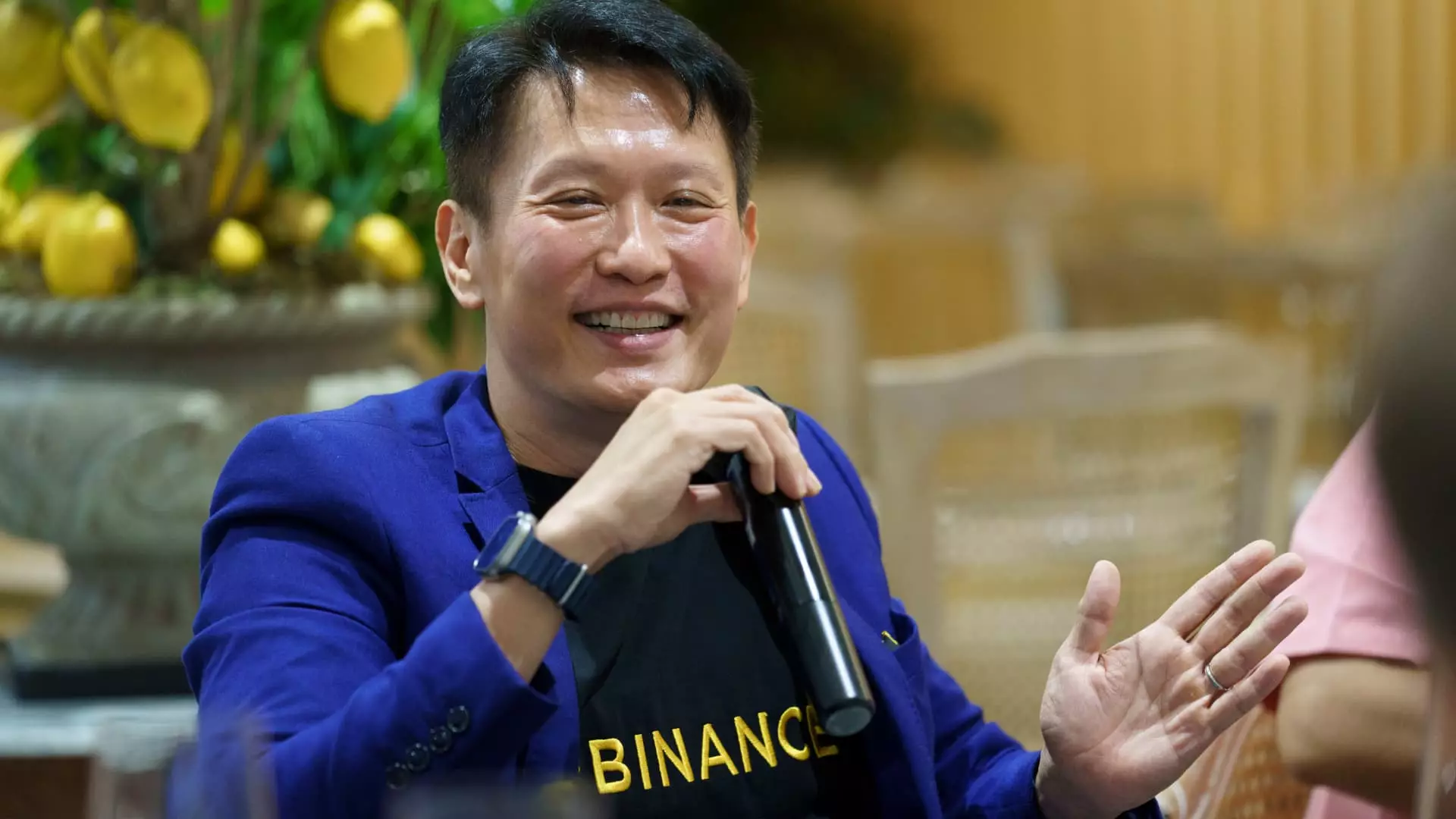In the volatile world of cryptocurrency, the pendulum of public and political sentiment swings rapidly. Just 16 months ago, Binance was a pariah in Washington, fraught with regulatory challenges and a tarnished reputation following a staggering $4.3 billion settlement. Yet, under the helm of the new CEO Richard Teng and with the Trump administration’s return, the exchange has experienced a dramatic reset. This development poses an intriguing narrative about Bitcoin’s future and the broader crypto landscape.
A Shift in Political Capital
Teng praised the current political climate, framing it as a “fantastic” reset for the crypto sector. The juxtaposition is stark: From battling relentless scrutiny during the Biden administration, and dubbed by insiders as “Operation Choke Point 2.0,” the industry has now seemingly reaped the benefits of a political environment characterized by pro-cryptocurrency policies. The notion of Trump as a pro-crypto advocate is a striking divergence from earlier perceptions, especially given the former president’s own challenging history with tech firms. However, one must question whether this newfound affiliation is genuine or merely a strategy for political power-play.
The scenario unfolding is reminiscent of a chess game—where both parties, Binance and the Trump leadership, maneuver to secure strategic positions. It’s a return to a time when political connections mattered significantly for tech firms. There is a possibility of Binance becoming a power broker in Washington, especially if recent talks about the Trump family’s financial stake materialize. This shift from outcast to a potential influencer raises eyebrows and concerns about whether regulatory compliance is being sacrificed on the altar of profitability and political patronage.
The Compliance Conundrum
Undeniably, Binance’s journey has been marred by scandal and a looming shadow of regulatory non-compliance. Teng has admitted to early failures in compliance, claiming a significant investment in that realm moving forward. His claims of a more robust compliance framework, with over 1,300 professionals on board, come off as both potentially reassuring and distinctly hollow. Are reformed corporate structures enough to wash away the sins of the past? The answer may hinge on how genuine Binance’s compliance efforts are, especially in light of ongoing battles with the SEC and regulatory issues abroad.
Yet, with this optimistic outlook, one cannot ignore the alleged imprisonments of key executives in Nigeria, where charges of tax evasion and compliance violations lay heavy. It paints a complicated picture that contradicts claims of cooperative relationships with governments. This paradox further raises a critical question: Can companies sustainably grow under political regimes characterized by unpredictability and punitive measures?
Global Ambitions Amid Domestic Challenges
With a spike from 170 million to 265 million users in one year, Binance is expanding rapidly across various jurisdictions, including the UAE and Latin America. This international aspiration, combined with recent efforts to potentially collaborate with entities like World Liberty Financial, demonstrates an aggressive expansion strategy. Yet one must ponder the risks involved. Is this expansion sustainable? The ever-shifting landscape of international regulations may threaten these ambitions, underlining the need for adaptability and a clearly defined strategy.
While Teng maintains that Binance retains a dominant market share—over 40% globally—it is crucial to consider the volatility of cryptocurrency popularity and regulatory landscapes. The rising prominence of competitors like Coinbase necessitates agility. Can Binance continue to innovate while juggling compliance challenges?
The Allure of AI and Institutional Investment
Recent moves, such as a $2 billion investment from Emirati state-owned MGX, underline the intersection of artificial intelligence (AI) and cryptocurrency. This transaction raises various implications: Not only does it reinforce Binance’s financial credibility, but it hints at a broader trend where institutional interest converges with digital currencies. The claim that AI enhances efficiency across customer service, security, and compliance is promising, but one must be cautious. Rapid technological advancement in cryptocurrency often blurs the line between opportunity and vulnerability.
Critics may worry that Binance could become over-reliant on tech-driven solutions while neglecting the inherent risks associated with crypto markets. The continuous evolution of regulations and the need for secure operations mean that every technological leap must be assessed critically.
The Road Ahead: Balancing Optimism and Reality
As Binance rides this wave of political and market optimism, the balancing act of growth, compliance, and innovation remains precarious. Richard Teng’s stewardship may provide a fresh perspective and renewed energy, but it should come with the acknowledgment of past mistakes. Each ambitious stride taken by the company must ring true to the broader theme of responsibility in the fast-evolving crypto ecosystem.
Ultimately, BINANCE’s ascendance under the Trump administration opens up a myriad of narratives—from heightened regulatory scrutiny to the emergence of friendly political alliances. Still, whether its trajectory is sustainable in the long run or merely a reflection of a momentary advantage remains to be seen. The complexities of cryptocurrency’s impact on politics and society signal that while the prospects may look bright today, the inherent uncertainties cannot be overlooked.

